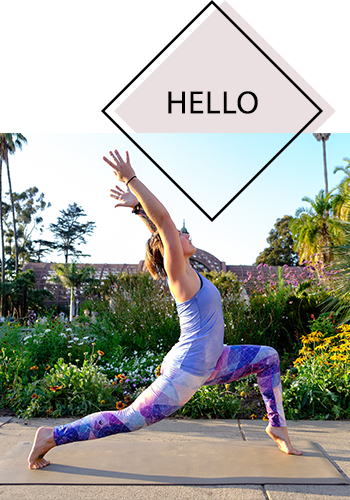Stop Striving And Start Living
/We live in a culture that teaches us that “progress is happiness.” And there’s undoubtedly some truth to that idea, that forward momentum creates contentment. People enjoy improving themselves, reaching new goals, and generally making themselves “better.”
This approach to life, though, can become a problem if it is all there is. When you never “get off the treadmill,” so to speak, you never experience life as it actually is. You’re stuck in the future to the point of ignoring the present.
This habit relates to the way the modern world maps out our lives. Do well in school, study hard, go to college, get a good job, get out into the “real world” and start living our lives.
But that may not be what really happens. Once we land our first job, we’re right back on the treadmill again. Now the task is to strive for a promotion and move up in the company. We might work for years, climbing up through various layers of management until we make VP, and can finally kick back, knowing we’ve made it.
Unfortunately, though, that may not be enough for us. We become disenchanted with our work and wonder what it’s all about. Why did we spend so much of our lives chasing money? Once we get to a certain position, we imagine we will feel different. But our emotions are just the same as they always were.
So then we start wondering whether retirement is the ultimate thing we’re seeking— and the cycle continues.
Yogi Karan Bajaj describes this process beautifully. He calls it “emotional materialism” — the idea that you always need to become someone or something better than you already are.
A person with emotional materialism is one who is always looking for growth in whatever circles they inhabit—social, economic, or spiritual. They can’t accept their lives, or themselves, as they are. There’s always something lacking.
Before modern times, hardly anyone had a toxic “growth mindset” so revered by our culture. People generally accepted their positions in life and lived them out with a sense of joy. But once individuals got the idea that they could be whatever they wanted to be, the sky became the limit. And that’s where the problem of constantly striving began.
So, how do we ground ourselves in the present moment? What are a few ways you can begin to enjoy life as it is today?
A daily gratitude practice through writing, meditation or prayer
Time outdoors in nature
Quality time with friends and family, deep conversations, time spent in appreciation
Turning your phone off
Physical experiences — good exercise, good food
Fun, laughter and play
What would your life look like if you made a conscious effort to strive less and live more?
The message of this post is this: it’s okay to be static. You can enjoy the moment. And you don’t have to be a victim of rank ambition for the whole of your life. You’re free to do what you want.



















Memoir ghostwriting is about transforming your life in the process of writing a beautifully-crafted book. Here’s why my clients often say the healing becomes the most valuable part.